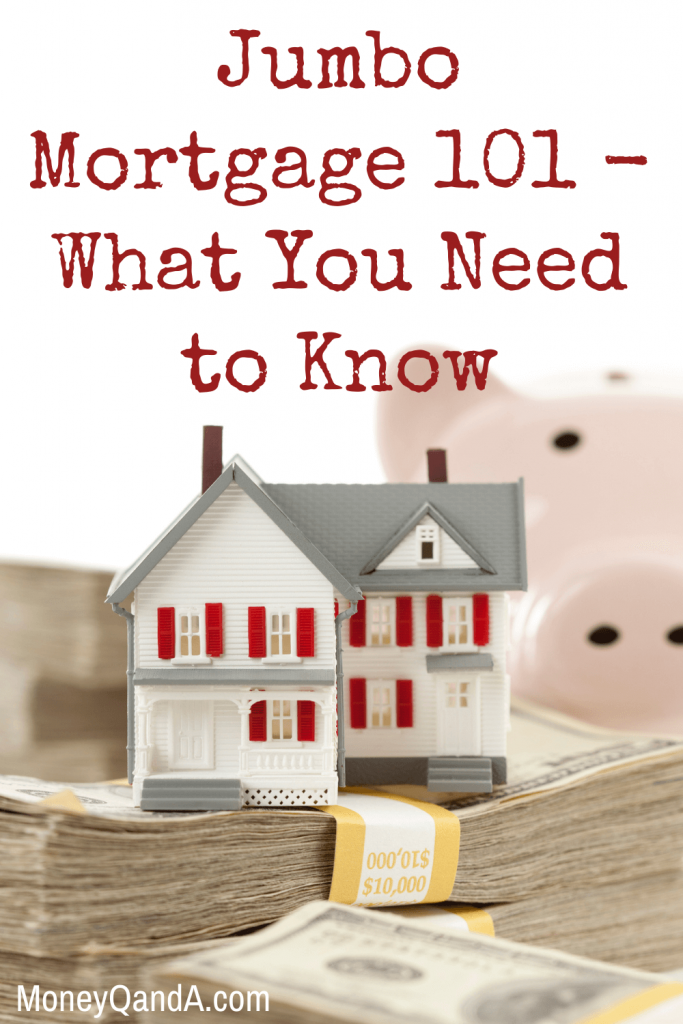
What happens if you find your dream home, but you’ll need to borrow more than half a million dollars to finance it? Even after the 2007/2008-era housing market crash, it’s still possible to access jumbo mortgage loans for pricier properties. However, you’ll likely face more restrictive borrowing requirements than you would with a conventional mortgage loan.
Jumbo Mortgage – What You Need to Know
While jumbo mortgages can be riskier for lenders, don’t let the name and tighter lending requirements deter you from a potentially favorable loan to finance your next property.
What is a Jumbo Mortgage?
Simply put, a jumbo loan is a type of mortgage financing that exceeds the Federal Housing Finance Agency’s (FHFA) maximum conforming loan limits, which vary based on the state and county where you’re purchasing a property. Fannie Mae and Freddie Mac may only purchase loans that fall within the maximum loan limits, so lenders typically prefer to finance smaller, conventional loans than riskier jumbo loans.
For the year 2021, the FHFA has established a maximum limit of $548,250 for one-unit properties. In high cost-of-living areas with pricier median home values, that maximum limit goes up to $822,375 (150% of the standard maximum). The FHFA’s conforming loan limits map provides a detailed visual glimpse at the limits for each county around the country.
Advantages of Jumbo Mortgage Loans
For some homebuyers, a jumbo mortgage loan may be your only option if median home prices in your area are high enough to exceed the maximum conforming loan limits established by the FHFA. A genuine advantage to jumbo loans is that they no longer require a full 30% down payment to qualify (10-15% is acceptable in some cases). However, putting down at least 20% is beneficial to avoid paying for private mortgage insurance (PMI).
For higher-income individuals and families (especially in the $250K to $600K annual income range), a jumbo loan is ideal for getting a property suited for your income, even if you don’t have many other assets yet. Rather than having to wait until you have $200,000 or more saved up for an $850K+ property, you can get a jumbo loan with monthly mortgage payments suitable for your income level.
Disadvantages of Jumbo Mortgages
Jumbo loans typically require a down payment of at least 10%, though you may be required to put down as much as 20-30% to qualify for a jumbo mortgage loan. This means that jumbo loans are best for people with higher incomes and plentiful funds reserved for a down payment. Still, if you live in a high cost-of-living area such as the California coast, Hawaii, or New York metro areas, a jumbo loan may be your only option.
Whereas conforming loans have a maximum debt-to-income (DTI) ratio requirement of 50%, your debt-to-income ratio should be no more than 38-43% to qualify for a jumbo loan. Furthermore, minimum credit score requirements for conventional loans generally hover around 620-650, while jumbo loans require a credit score of 700 or higher to qualify in most cases.
Jumbo mortgage financing may also require that you have at least 6-12 months (or as many as 18 months) worth of mortgage payments in cash reserves, which protects the lender against possible default by ensuring you have sufficient liquid assets to cover your mortgage payments earlier on in the loan’s term. Lastly, jumbo mortgage loans tend to have higher interest rates to account for the extra risk to the lender, which means you’ll pay significantly more for your home over the life of the loan.
As you can see, there tend to be more downsides to jumbo mortgage loans than there are upsides, primarily due to the level of risk involved for lenders that can’t rely on Fannie Mae and Freddie Mac’s help if you default on an expensive mortgage. The preponderance of disadvantages doesn’t mean you should avoid jumbo mortgages altogether; instead, this should be a valuable reminder to thoroughly research your options beforehand and discuss with your loan provider which one might be best for your situation.
If you have the credit history, income, job security, and assets to sufficiently cover a jumbo loan exceeding $548K (or $822K in high cost-of-living areas), then the slightly higher interest rate and stricter lending requirements shouldn’t deter you from exploring jumbo loans as a possible avenue for financing the home of your dreams.

